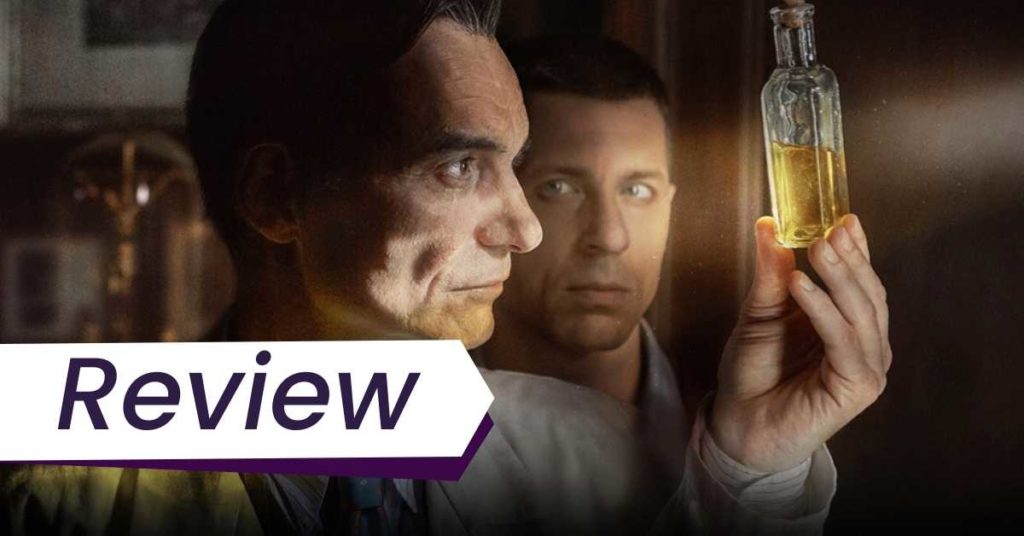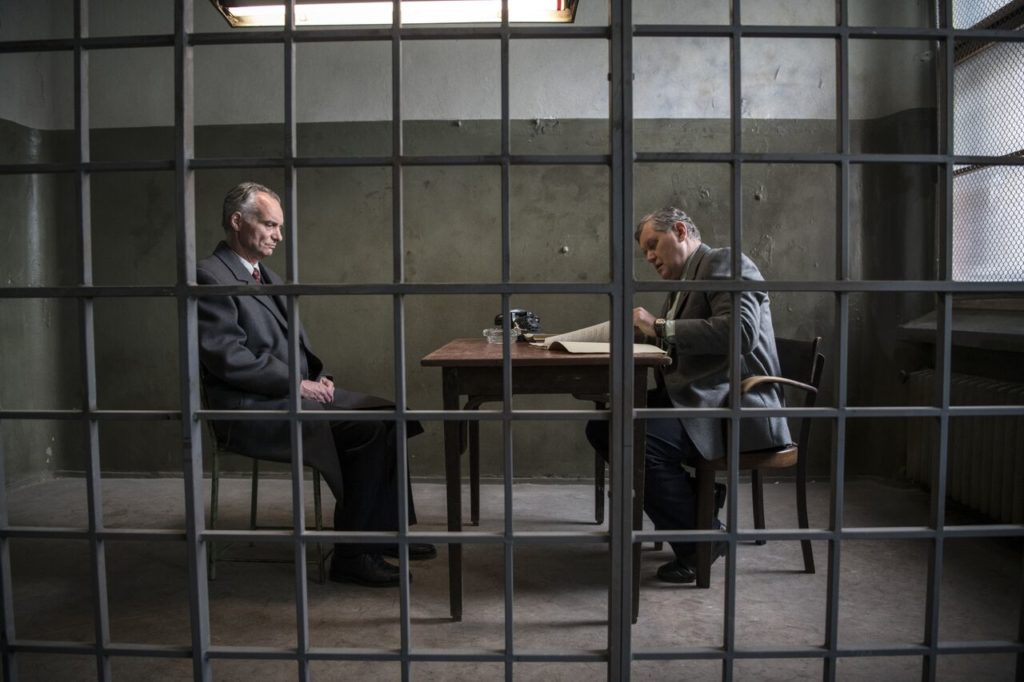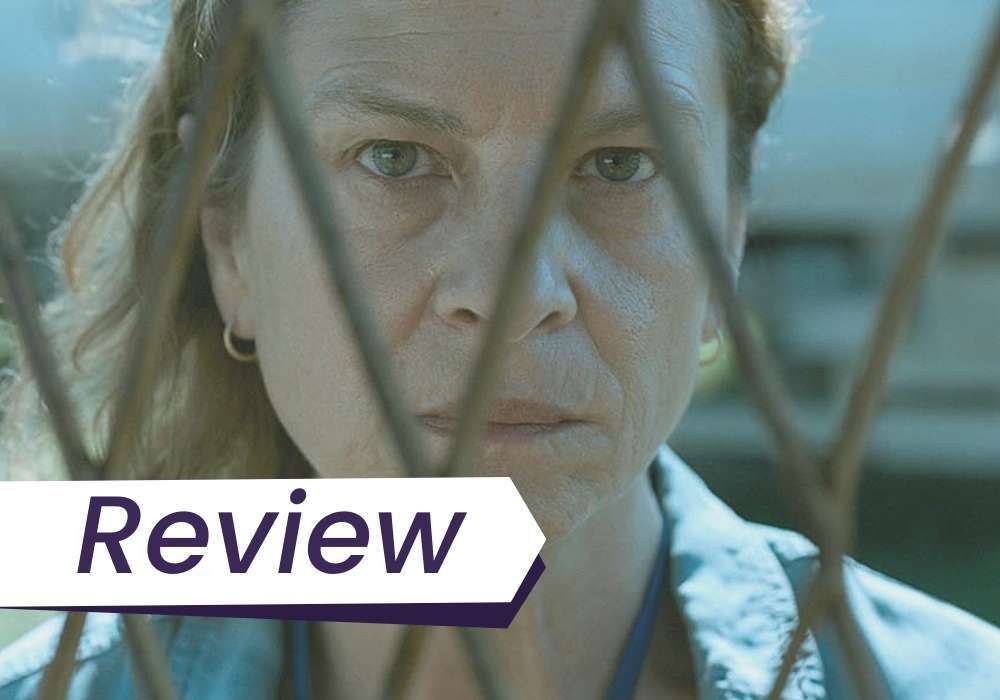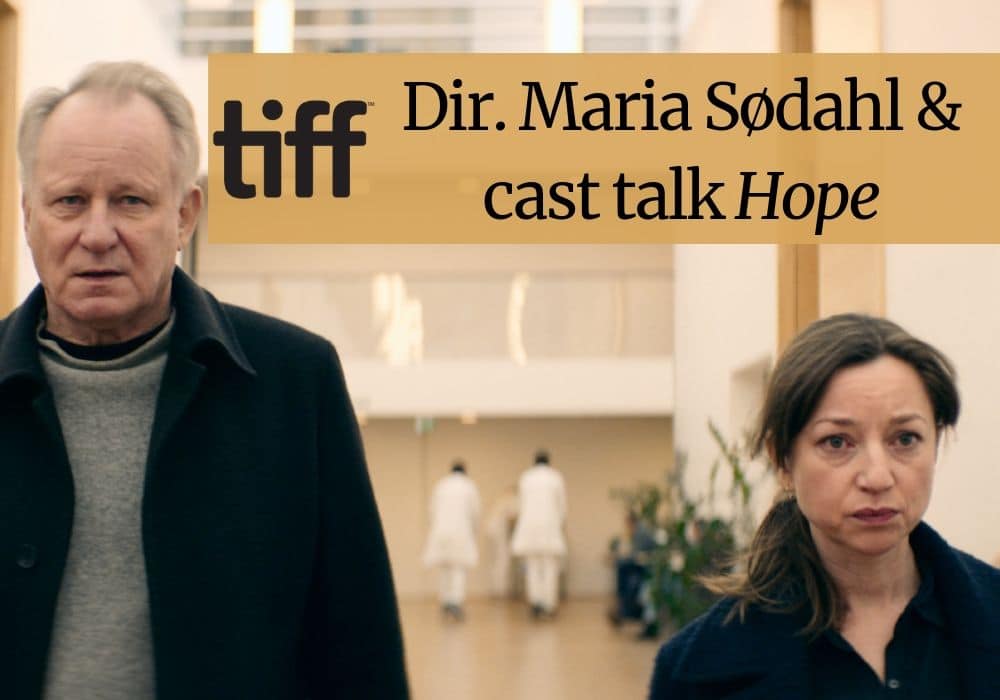Agnieszka Holland’s Charlatan tells the story of Czech herbalist and healer Jan Mikolášek to draw parallels with post-war communism. Charlatan is the Czech Republic’s submission for the 2021 Best International Feature Oscar.
Listen to our podcast discussion of the film, as well as Agnieszka Holland’s Europa Europa and Washington Square.

Discover one film you didn’t know you needed:
Not in the zeitgeist. Not pushed by streamers.
But still easy to find — and worth sitting with.
And a guide to help you do just that.
Polish filmmaker Agnieszka Holland (The Secret Garden) has followed up her biopic of Gareth Jones and his discovery of the 1930s Ukrainian famine, Mr Jones, with Charlatan, a post-war biopic about Czech herbalist and healer Jan Mikolášek (1889-1973). While Mr Jones was about revealing an untold harrowing part of history and how one foolhardy man brought this story to light, Charlatan uses Mikolášek as a sort of metaphor for post-war communism in order to ask whether the new regime is really a form of liberation or just a variation on a fascist theme.
Holland introduces us to Jan (Ivan Trojan) as a successful, middle-aged man, who runs a healing centre out of his mansion. Every day, hordes of people queue up in front of his home with clear bottles of urine in hand, hoping for a chance to see the great healer and find hope. Jan’s methods are to hold up the clear bottles of urine to the light in order to divine diagnoses ranging from diabetes to kidney failure. We never see him follow up with patients so the accuracy of his proclamations aren’t really up for debate. Instead, we see him sell one of four brews to each of his patients as cure-alls, and watch people leave excited and satisfied.
In an interview with Bilge Ebiri earlier this year, Holland talked about her struggles with her health as a young girl, having spent much of it bed-ridden. It’s part of what made her masterful The Secret Garden such a personal film for her, and perhaps why it focuses on the contraptions of Edwardian medicine even more so than the novel. In The Secret Garden, Colin’s treatments are probably worse than his so-called condition, which proves largely psychosomatic — and yet there’s so much trust put into the medical establishment.
Charlatan is a continuation of Holland’s interest in how we interact with medicine, though this time through someone without any medical training. Of course, even in the 1940s, with antibiotics only just introduced, medicine was fairly primitive, and perhaps, to a degree, hard to differentiate from the kind of faith healing charlatanism that Jan practices. Yet even though the papers, and eventually the state, dismiss Jan as a charlatan, Holland isn’t quite so quick to do so. For her, part of our trust in healers is about the pomp and circumstance that comes with it. Jan’s aristocratic office with fancy wooden furniture, high ceilings, and chandeliers, is part of what people come for; even his lab coat is part of the magic show. He has patients who rave about his services, but is there any method to his ‘urine reading’? The film doesn’t delve into this directly, but as modern audiences, we’re skeptical from the start.
What becomes most interesting is Jan’s own ambivalence about his work: does he truly believe he’s helping people or is he just trying to get rich? Most of the time, it seems like both are true. In an early scene, we see him offer a woman cash to pay for a seaside vacation to treat her child’s vitamin D deficiency. But this act of kindness is contextualized amidst his gouging of other patients for his dubious remedies. Is he trying to buy good publicity, assuage his guilt, or does he truly care? Possibly, all of the above. When he’s eventually arrested and put on trial for the death of a high-placed official in the party whom he supposedly treated, which lead to the man’s death, he’s anxious to get back to work because of the people he could be helping.

The upcoming trial is used as a device to have Jan look back on his pre-war life as he talks to his lawyer, allowing us to flash back to that time. We discover he learned his trade from a local woman with “the gift” who saw potential in him and took him on. He was eager to learn, and for the encouragement that his father never gave him, but he also is enterprising from the start, commenting to her that she could be rich if only she’d charge for her services. She’s ethically against that, but we soon learn Jan doesn’t share such qualms. He makes his fortune with the skills she taught him, and he survives the war by agreeing to treat Nazis.
Jan isn’t just enterprising though, he’s also controlling. Through the burgeoning relationship with his assistant, František (Juraj Loj), that began before the war, Holland reveals Jan’s need to control his lover. He initiates the relationship, and then looks for ways to keep František from his wife. Jan is also prone to outbursts of violence. Whether as a young man or in present day, he will turn from relatively mild-mannered to cold-blooded in an instant — not just in physical outbursts of violence, but emotional ones, too. It makes us question whether Jan’s work is more about control, about being a god-like figure, than it is about helping people, no matter what he may say. Trojan plays Jan with a seriousness and mystique that makes you want to lean in and understand this man who can seem kind and cruel from one moment to the next. In flashbacks to his youth, Trojan’s son, Josef Trojan, plays Jan’s younger self with equal aplomb if more youthful innocence.
Through the trial that closes out the final act of the film, and the connections between the current administration and its Nazi forebears, Holland draws parallels between the state and Jan’s practice. The trial is a foregone conclusion, more show trial than real trial, intended to discredit Jan and end his life, as he’s informed by his lawyer. Here, we see the state controlling the justice system much in the way Jan controls his patients and his lover. And if such a trial can exist, in which a citizen is framed and ruthlessly sent to his death, is totalitarianism really gone? Jan’s mercenary tendencies continue even here. Much like the state, he may claim to want to help others, but ultimately, selfish concerns win out, and collateral damage matters little to him.
Charlatan is available to rent across the US at the AFI European Union Film Festival until December 20. Tickets are available here.
You could be missing out on opportunities to watch great films like Charlatan on VOD, virtual cinemas, and festivals.
Subscribe to the Seventh Row newsletter to stay in the know.
Subscribers to our newsletter get an email every Friday which details great new streaming options in Canada, the US, and the UK.
Click here to subscribe to the Seventh Row newsletter.




